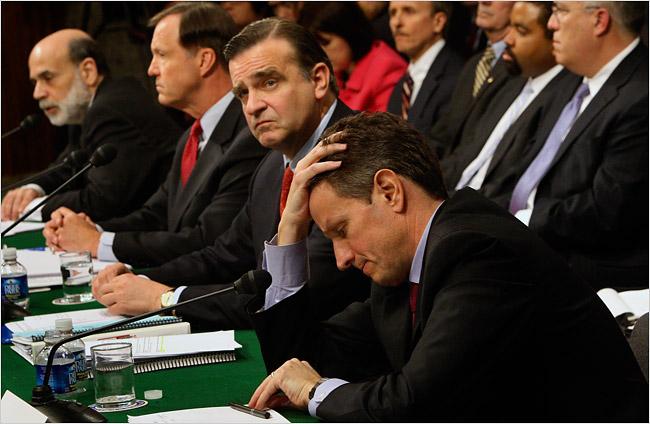Pulitzer Prize winner Ron Suskind’s most recent work, Confidence Men, tears down the walls of the White House to readers to give an inside glimpse of President Obama’s handling of the domestic and economic policies in the first years of his term. The book paints a picture of an inexperienced President encountering an economic crisis unrivaled since the Great Depression. Along with the crisis comes an opportunity to change the system and culture of Wall Street, a very Roosevelt moment in time, and Suskind deftly explains why and how that campaign promise of change was never able to come to fruition.
Suskind’s strength is to take the heavily researched material and compact it into a riveting narrative tale. Throughout the book, the paragraphs can quickly shift from wonkish policy to high Shakespearean drama within the administration. This style lends a lot to the readability of the text but opens up Suskind to the charge of coloring the story with his own brush rather than reporting a drier set of facts. This occurs throughout the book when he inserts into the text lines such as “in a stage whisper” which work, in this case, to elevate the drama. In addition to coloring the text with the choice of language, Suskind also clearly frames the heroes and villains in a blunt manner. There’s no doubt in Suskind’s text that Larry Summers, Tim Geithner, and Rahm Emmanuel are the confidence men referred to in the title, those who “gain the trust without earning it.” It’s just as clear that the heroes in the book are the few that were shut out of policy making or governing but that were champions for change, like Paul Volcker and Elizabeth Warren.
It’s President Obama, though, that the book is really about. Suskind uses all of Part I to describe the campaign while in the midst of the impending economic crisis, and those are the times when Obama shined brightest. Unfortunately, he was not able implement the rhetoric of the campaign into real change, despite having immense political capital. Confidence Men is primarily an examination of why President Obama failed in his first years as President. The following reasons all contributed greatly:
1) President Obama lacked experience, especially in management. The knock on President Obama throughout his campaign with McCain was the lack of experience. Obama was only a little more than four years removed from serving as a State Senator in Illinois and had never led any type of large sized organization or business. This lack of experience showed up frequently in the next two years as the administration consistently failed to either take advantage of timely opportunities or failed to execute the desires of the President.
2) President Obama surrounded himself with the wrong people. This is partly due to his lack of experience that he came to depend on Washington insiders and former Clintonites rather than the people he surrounded himself during the campaign. Suskind frequently refers to a Team A of Volcker, Austan Goolsbee, Bob Reich, Robert Wolf, and Paul O’Neill; and a Team B comprised of Larry Summers, Tim Geithner, and the Bob Rubin acolytes. Obama chose the Team B, most of who were behind the deregulation that had in fact caused the economic crisis and had no interest in altering the status quo. Using their philosophy “first, do no harm,” they were able to avoid any real punitive measures for the finance industry and any real reform.
3) President Obama attempted to tackle too much. Obama was dealing with the economic crisis, financial reform and health care all at the same time. Suskind writes “no one had the temerity to say, ‘Mr. President, any one of those three would be more than enough to challenge a new president with so little executive experience.’” Remember, also, that this was all on the domestic front and that President Obama was also fighting two Middle Eastern wars. See here.
4) President Obama’s style was to try to build consensus. Suskind describes the President as extremely intelligent, impressing many that met him. However, he tended to try to bring opposing opinions together in a campaign like effort, rather than using his power to coerce. There were several opportunities in both financial reform and health care that the President needed to use the spear. His inability or lack of desire to do so cost the administration dearly and may have lost them the opportunity to enact real change. Also, his technocratic way of thinking led to an administration that would constantly relitigate issues over and over leading to a paralyzed executive branch.
In Confidence Men Suskind is a much harsher judge of the advisers who often whipsawed Obama around and even, in the Treasury Department’s case, slow walked direct policy orders. Suskind seems willing to give a benefit of the doubt to the President as he replaces most of his initial senior staff and old hand Pete Rouse begins to take charge. Yet, despite Suskind’s somewhat sympathetic tone towards Obama, it’s shocking how the President could allow so much insubordination and lack of accountability in the White House. It points to a weakness in the ability to not only create policy but also make sure it gets executed. In short, Confidence Men
is an indictment on the executive ability of President Obama.
